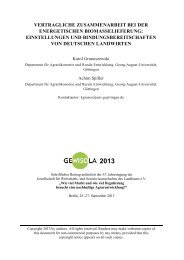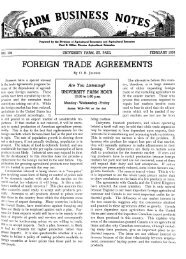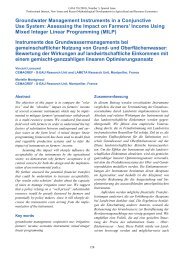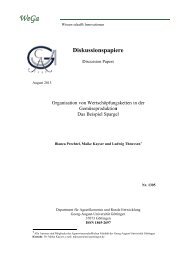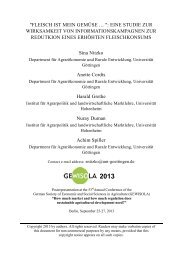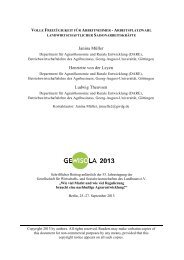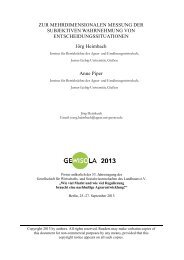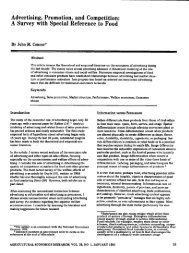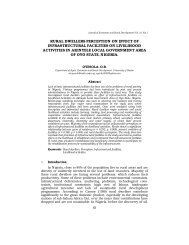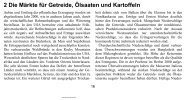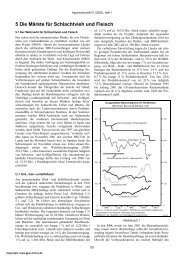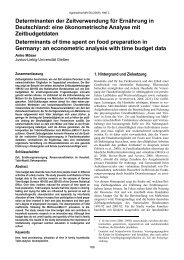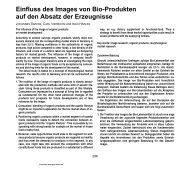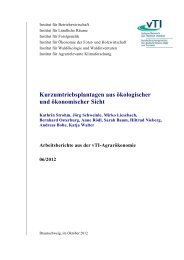District Institutes of Education and Training - Teacher Education
District Institutes of Education and Training - Teacher Education
District Institutes of Education and Training - Teacher Education
Create successful ePaper yourself
Turn your PDF publications into a flip-book with our unique Google optimized e-Paper software.
<strong>District</strong> <strong>Institutes</strong> <strong>of</strong> <strong>Education</strong> <strong>and</strong> <strong>Training</strong>: A Comparative Study in Three Indian States<br />
new intake <strong>of</strong> para-teachers under the <strong>Education</strong> Guarantee Scheme. These para<br />
teachers came to DIET twice yearly for on the job training. The DIET’s intention<br />
was to see reactions to the training, what they felt they had learned, <strong>and</strong> its<br />
applicability in the field. The same questionnaire was given in the second training<br />
to try <strong>and</strong> see how para teachers were developing, <strong>and</strong> what gaps they had found<br />
when they tried to implement training messages. The DIET staff took this up as a<br />
longitudinal study which continued after the project term.<br />
7.4.5 Language teaching<br />
In Indore DIET, five DIET staff members expressed their interest in researching<br />
language teaching in government <strong>and</strong> AS/EGS schools by comparing the teachinglearning<br />
materials <strong>and</strong> examining their contribution to the overall effectiveness <strong>of</strong><br />
the teaching approach. This research arose after the team had shared with the<br />
DIET its teacher action research project processes <strong>and</strong> findings (discussed in<br />
chapter 8), which the DIET found very interesting <strong>and</strong> wanted to replicate. This<br />
proposal was one <strong>of</strong> four that was approved by the DIET Principal for submission<br />
to SCERT for funding under the State scheme for supporting action research.<br />
The DIET staff in Madhya Pradesh had all been instructed to take up two<br />
schools for intense visits <strong>and</strong> improvement. This project was dovetailed into<br />
this instruction, as DIET staff could work intensively with their schools on<br />
language issues. The researcher in the DIET also observed the language teaching<br />
in the DIET <strong>and</strong> in some primary schools, to generate a dialogue with the DIET<br />
staff.<br />
This project began with great enthusiasm but in the wider context, re-organisation<br />
<strong>and</strong> reform <strong>of</strong> the DIETs was now beginning to take shape. The DIET was refocused<br />
onto developing its own <strong>District</strong> plan for the next five years; <strong>and</strong> there was<br />
much discussion about potential re-staffing <strong>of</strong> DIETs, according to which those<br />
serving as Block-in-charge at the DIET would be expected to work at the Block<br />
level. These sweeping changes inevitably took precedence over the action research<br />
projects. This led the DIET to make different dem<strong>and</strong>s on the research project<br />
leaders, <strong>and</strong> resulted in four days <strong>of</strong> close consultation about how to do effective<br />
<strong>District</strong> planning.<br />
7.5 Pr<strong>of</strong>essional development issues<br />
The collaborative action research work with DIETs had several positive outcomes<br />
which contributed to staff ’s pr<strong>of</strong>essional development in the short <strong>and</strong> medium<br />
term.<br />
DFID 147



